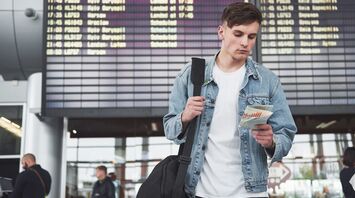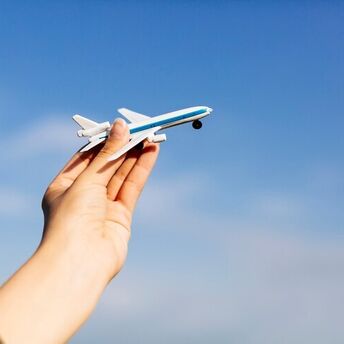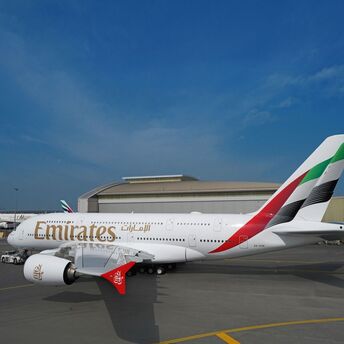If you want to avoid flight delays, there are several ways to reduce your chances of experiencing disruptions at the airport

Everyone knows how frustrating it is when your flight is delayed. You spent several hours traveling to the airport, arrived with plenty of time to spare, and now your flight time has changed.
Obviously, there are a few ways to limit your chances of encountering airport disruptions. "Booking flights at specific times and on specific routes can ensure that your plane leaves on time," writes HuffPost.
Scott Keyes, founder of Going.com, tells us which flights are worth booking if you want to reduce the likelihood of a flight delay.
"While we can't control thunderstorms or predict snowmelt, that doesn't mean travelers are completely helpless. There are two types of flights that have the best on-time performance: early morning flights and/or non-stop flights," says Keyes.
Don't like taking an early flight? Well, unfortunately - but also fortunately - for you, according to Keyes, booking early can increase the chances of your flight leaving on time by 20%.
The data released by Going also showed that 86% of flights from 6 am to 7 am arrived on time, and 66% of flights from 10 pm to 11 pm landed as planned.
"While late evening departures can be convenient, they also come with risk," says Gordon Smith, editor of Airliner World magazine. - "Low-cost airlines typically only allow 30 minutes between boarding and takeoff throughout the day, so it doesn't take much for a schedule to go awry," he explains.
"Problems can be compounded as later flights are more likely to experience delays."
Keyes goes on to explain why booking an earlier flight is the safest option.
"The earlier your flight is, the better your chances are," he adds. - "This is because the weather is usually better in the morning, and also because the plane is usually already at the airport rather than coming from somewhere else and therefore at risk if that flight is canceled.
In addition, although booking a direct flight is expensive, it can reduce the likelihood of delays and cancellations. If there are any problems on the first flight, it can affect all other connecting flights, Keyes shares.
"A 2-hour delay only means a 2-hour delay, whereas a 2-hour delay on a connecting flight can mean a missed connection and a long wait to reach your final destination," he adds.



















